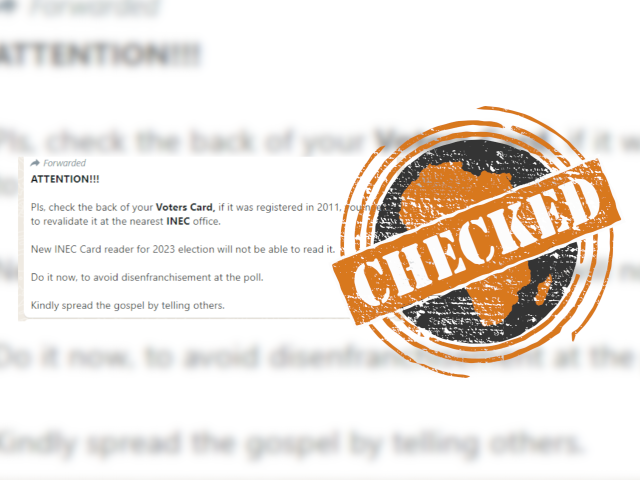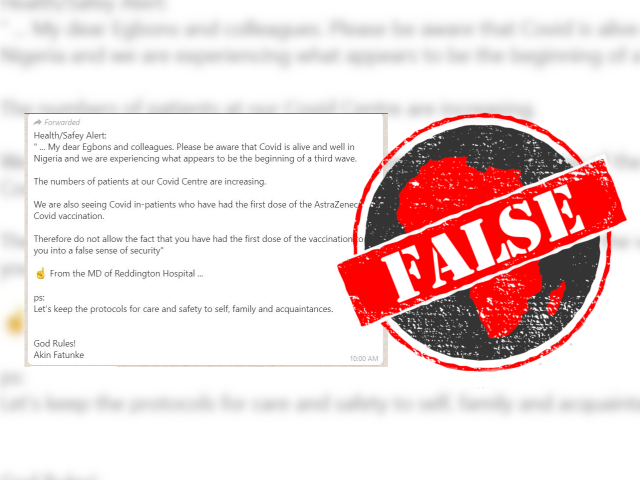A message circulating on WhatsApp claims the messaging app will shut down “tomorrow at 6 pm”, after which people will “have to pay to open it.”
It urges users to forward the message to everyone in their contact list to keep their accounts active and avoid losing their contacts.
“If you do not send this message to all your contacts WhatsApp will then start to charge you,” it says. It claims that according to a message from “Jim Balsamic (CEO of Whatsapp)”, the service has “an over usage of user names on whatsapp Messenger” (sic).
“Kindly send this to 20 people to register urself in Free-Whatsapp mode. If you send this, you will recieve green ticks. The blue ticks was just an update. Wait for the GREEN tick. Facebook and whatsapp combined is the new version©. Send this ASAP.”

A simple search on Google shows that different versions of this message have been circulating for at least eight years.
And they’ve been debunked several times. One of the earliest reports was a January 2012 fact-check by Hoax-Slayer.
At the time, a post on the WhatsApp blog dismissed the messages as “a hoax”.
On its website, WhatsApp advises users that unwanted messages from unauthorised third parties try to “deceive you and prompt you to act in a certain way.”
It lists four signs of hoax messages:
When you receive a scam message, WhatsApp advises that you block the sender, disregard the message and delete it. – Africa Check
It urges users to forward the message to everyone in their contact list to keep their accounts active and avoid losing their contacts.
“If you do not send this message to all your contacts WhatsApp will then start to charge you,” it says. It claims that according to a message from “Jim Balsamic (CEO of Whatsapp)”, the service has “an over usage of user names on whatsapp Messenger” (sic).
“Kindly send this to 20 people to register urself in Free-Whatsapp mode. If you send this, you will recieve green ticks. The blue ticks was just an update. Wait for the GREEN tick. Facebook and whatsapp combined is the new version©. Send this ASAP.”

Debunked in 2012 and many times since
A simple search on Google shows that different versions of this message have been circulating for at least eight years.
And they’ve been debunked several times. One of the earliest reports was a January 2012 fact-check by Hoax-Slayer.
At the time, a post on the WhatsApp blog dismissed the messages as “a hoax”.
WhatsApp advisory on hoax messages
On its website, WhatsApp advises users that unwanted messages from unauthorised third parties try to “deceive you and prompt you to act in a certain way.”
It lists four signs of hoax messages:
- The sender claims to be affiliated with WhatsApp.
- The message content includes instructions to forward the message.
- The message claims you can avoid punishment, like account suspension, if you forward the message.
- The message content includes a reward or gift from WhatsApp or another person.
When you receive a scam message, WhatsApp advises that you block the sender, disregard the message and delete it. – Africa Check
Republish our content for free
For publishers: what to do if your post is rated false
A fact-checker has rated your Facebook or Instagram post as “false”, “altered”, “partly false” or “missing context”. This could have serious consequences. What do you do?
Click on our guide for the steps you should follow.
Publishers guideAfrica Check teams up with Facebook
Africa Check is a partner in Meta's third-party fact-checking programme to help stop the spread of false information on social media.
The content we rate as “false” will be downgraded on Facebook and Instagram. This means fewer people will see it.
You can also help identify false information on Facebook. This guide explains how.





Add new comment